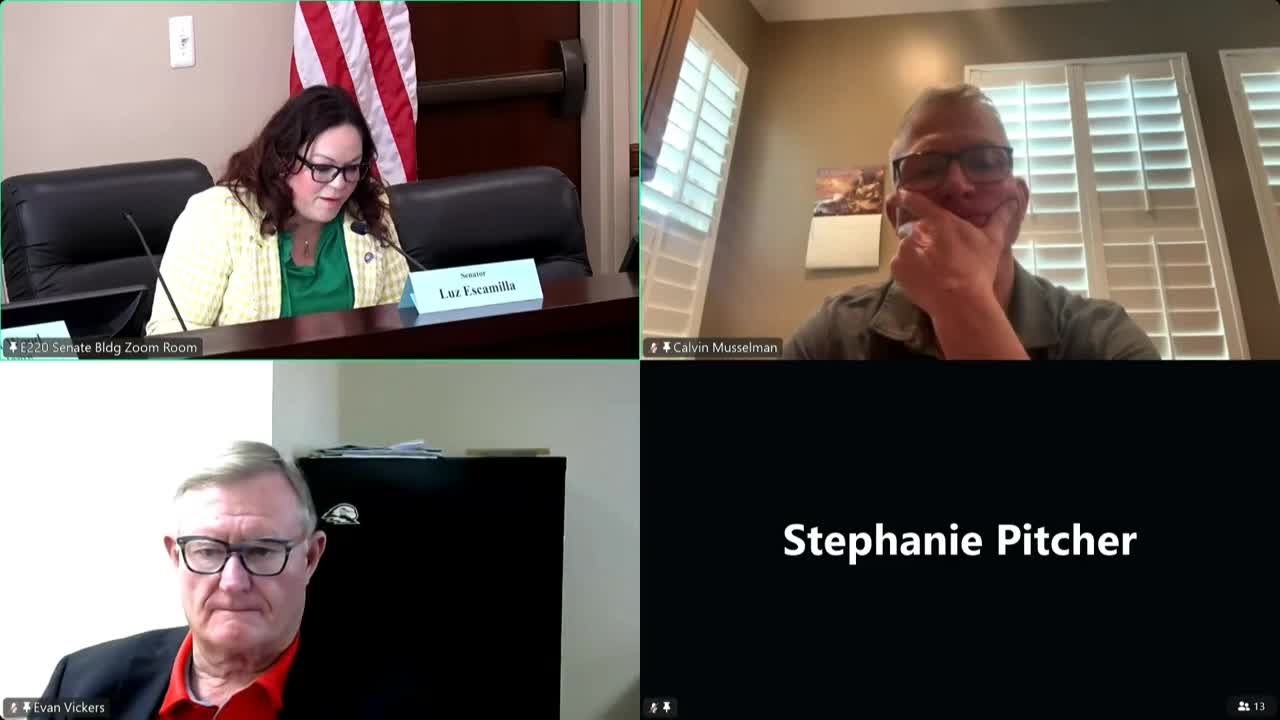Senate committee unanimously recommends Sean Barrett for Utah financial regulator
Get AI-powered insights, summaries, and transcripts
Subscribe
Summary
The Senate Business and Labor Confirmation Committee voted 6-0 to forward Sean Barrett’s nomination as commissioner of the Utah Department of Financial Institutions to the full Senate after a hearing that highlighted his regulatory experience and priorities including staff readiness, digital-asset oversight and consumer outreach.
The Senate Business and Labor Confirmation Committee voted 6-0 to recommend Sean Barrett to the full Senate for confirmation as commissioner of the Utah Department of Financial Institutions after a public hearing in which Barrett described his experience and priorities for the agency.
Barrett, the nominee, told the committee he was “honored to be asked by Governor Cox to serve” and outlined a career in state financial regulation that began in 1998 when Commissioner Ed Leary hired him as a bank examiner. Barrett said the department oversees state-chartered community banks, industrial banks, credit unions and a range of nondepository lenders and money-service businesses, and that Utah “ranks fifth in terms of assets under supervision at the state level in the whole country.”
The committee’s endorsement follows questions focused on three areas Barrett identified as priorities: preparing staff for a potential economic downturn, strengthening the department’s ability to oversee emerging financial technologies, and maintaining consumer protections.
On staff readiness, Barrett said turnover during and after the pandemic left the department with many examiners who have not yet worked through a full recession. He told the committee the agency is focused on training so staff can “walk into what could be a more difficult economic environment” and noted that banks in Utah generally carry higher capital levels than peers in other states.
Barrett also described efforts to expand the department’s technical expertise on digital assets and other new products. “We have been striving at the department in the last year and a half or so to try and build up some credibility and expertise in that area,” he said, describing conversations with regulators in Wyoming, California and New York about how those states implemented supervision programs for such entities.
On industry-specific issues, Barrett said Utah’s industrial-bank examination regime is equivalent to other banks at the charter level and stressed the department’s commitment to consumer protection and standard supervisory programs including anti-money-laundering and information-technology exams.
The nominee described how the agency uses data from federally required quarterly call reports to spot early signs of stress—such as increases in 30-day delinquencies—and to guide supervisory attention. He said some institutions have increased their loan-loss reserves over the past two quarters as a precaution.
Committee members also asked about consumer-facing work. Barrett said the department operates a complaint process led by Consumer Affairs Director Andrea Staley that takes written complaints and requires institutions to respond; he described renewed educational outreach in partnership with the state treasurer’s office, including support for high-school financial programs and the treasurer’s Women and the Money conference.
Two public commenters spoke in support of Barrett. Andrea Moss, president and CEO of Nelnet Bank, said she had worked with Barrett when he supervised industrial banks and that she and the industry “fully endorse this confirmation.” Frank Pignanelli, executive director of the National Association of Industrial Bankers and the Utah Association of Financial Services, told the committee Barrett is “unequivocally qualified” and praised Utah’s dual-banking framework.
Senator Luz Escamilla, chairing the hearing, opened the session and asked Barrett to summarize why the position matters for the state. After questions and public comment, Senator McKay moved that the committee recommend Barrett’s confirmation; the committee adopted the motion by voice vote and recorded a 6-0 tally in favor.
The committee noted the nomination will go to the full Senate for consideration next Wednesday at 4:00 p.m., where the Senate will take up final confirmation.
Votes at a glance: The committee approved minutes from the Nov. 25, 2024 meeting (motion to approve minutes; outcome: approved, unanimous voice vote) and recommended Sean Barrett’s nomination to the full Senate (motion to recommend confirmation by Senator McKay; outcome: recommended, 6-0).
